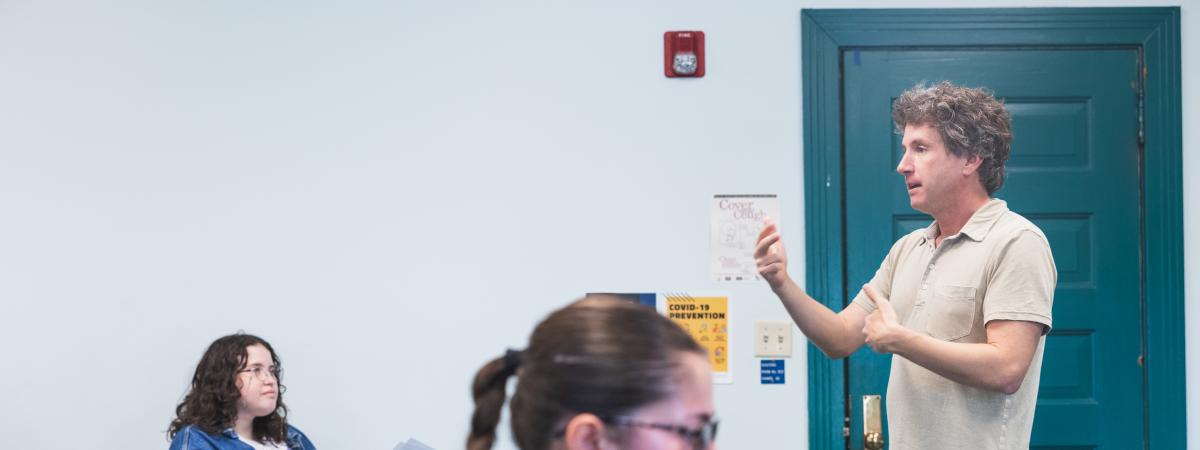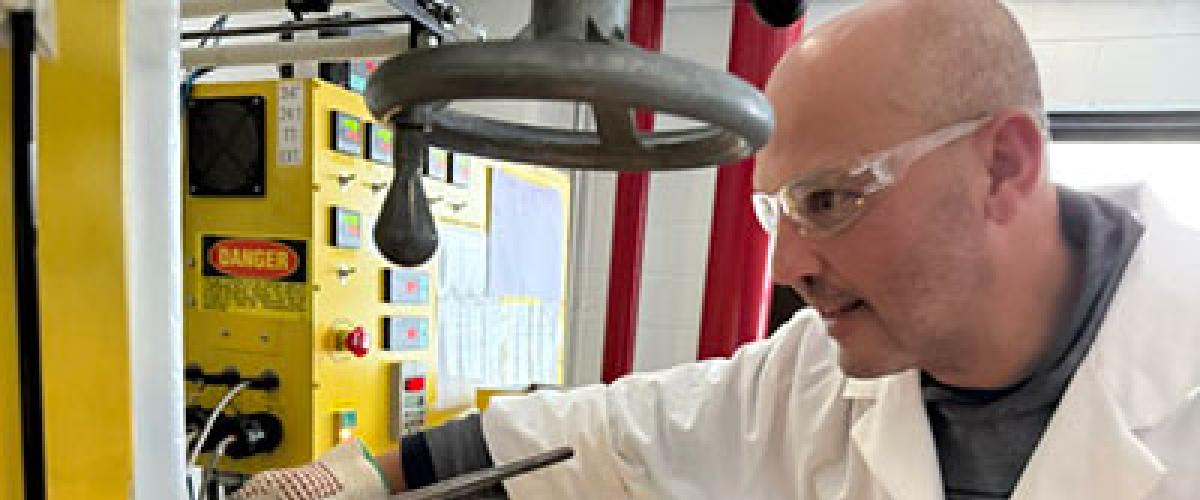
Exploring the power of poetry: Walt Hunter's journey through words and history
Walt Hunter
Senior Associate Dean for the College of Arts and Sciences
Area of Focus: Poetry and how it connects to the world
Since he was introduced to the works of William Butler Yeats and Emily Dickinson in early childhood, Walt Hunter has loved poetry—an admiration he's turned into a career.
"I've always loved the music of poetry, and that became a research area for me when I realized that poets were drawn to writing about the things that really materially affected them in their worlds," said Hunter, senior associate dean for the College of Arts and Sciences.
His research looks at poetry over time and explores how poets use and adapt language to express—or even work through—their thoughts and experiences.
"For me, it involves situating a poet who's writing in the present vis-à-vis the poets who have written in similar ways in the past, and thinking about that ongoing conversation," Hunter said. "The special thing about poetry is that it's always a conversation. You're always in tune with the past in some way."
Hunter has been particularly in tune with the past while working on an anthology of poetry published in The Atlantic, where he serves as contributing editor.
The Singing Word: 168 Years of Atlantic Poetry, released this week, begins with a poem about Paul Revere’s ride in the 1860s and goes through the present. Putting together the anthology, which includes poems from regions and states all over the United States, felt to Hunter like he was traveling around the country listening to different communities.
"And I think that's particularly important at this moment, when we feel like we don't understand the way others think in the country," he said.
Poetry can be a “vehicle for helping us understand, feel, heal and connect with others,” Hunter said. To study it is not to study a niche field, but to study something that is core to humanity.
“If we fail to teach our students the complexities of poetic language, what we fail to do is give them the tools to take control over their language,” Hunter said. “And if we fail to do that, then anybody can use language in an abusive and powerful way…. When we teach poetry, what we're doing is really empowering students to use language in their own ways, and therefore to transform their sense of possibilities.”
Hunter hopes that The Singing Word will enable others to do some interesting research on American poetry. The book is also meant for kids to read and perhaps fall in love with poems the way he once did.




